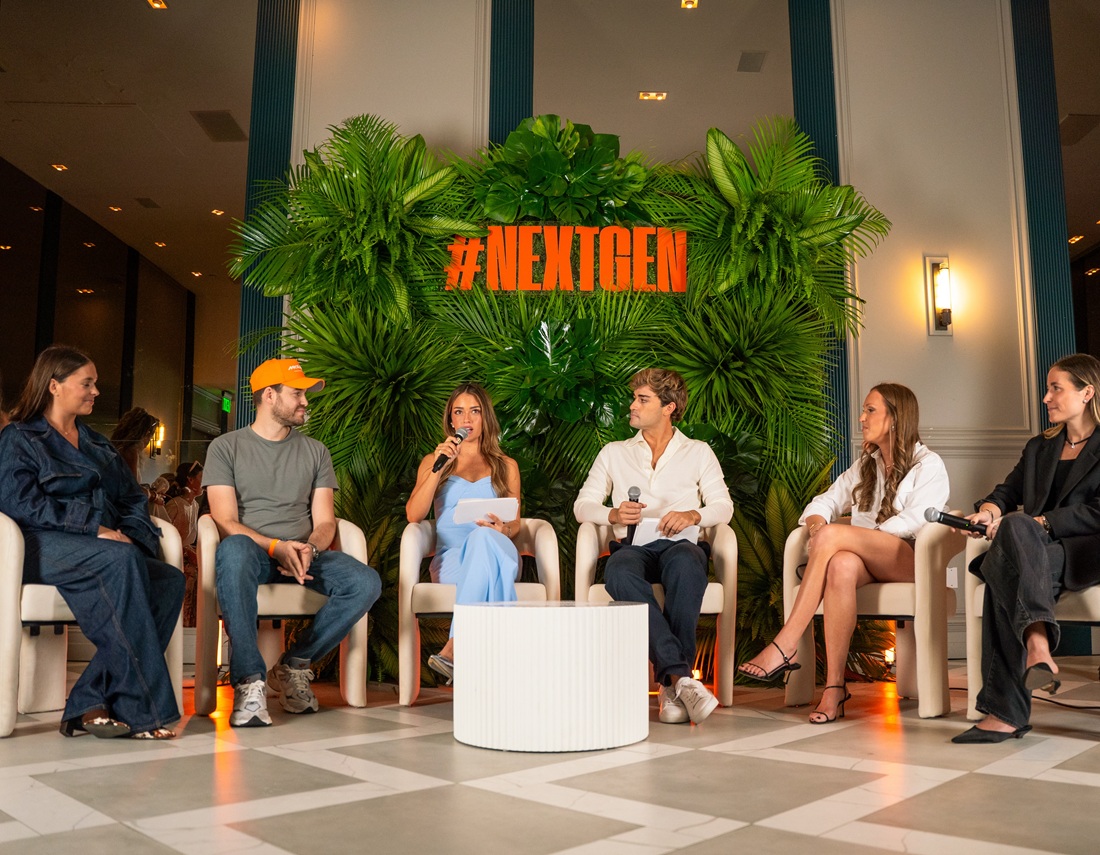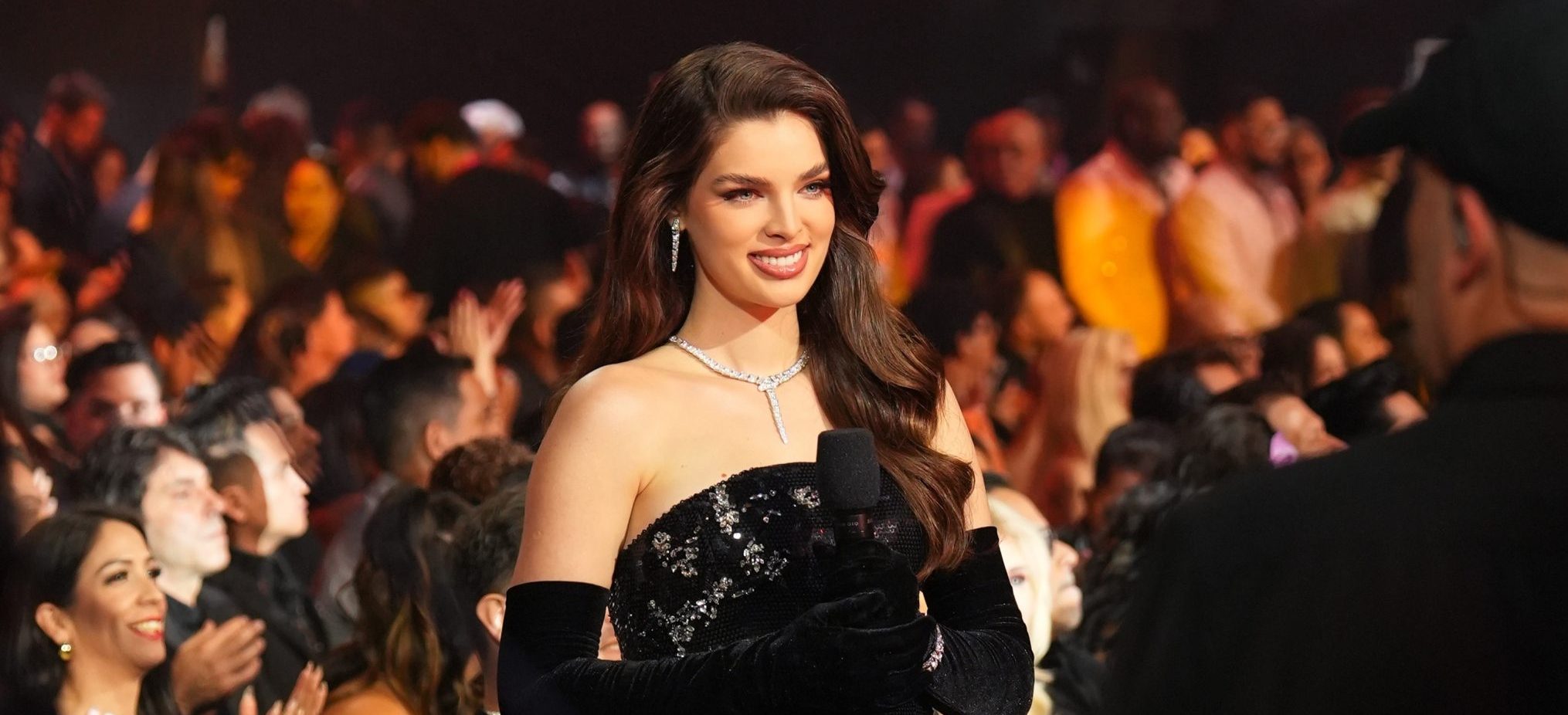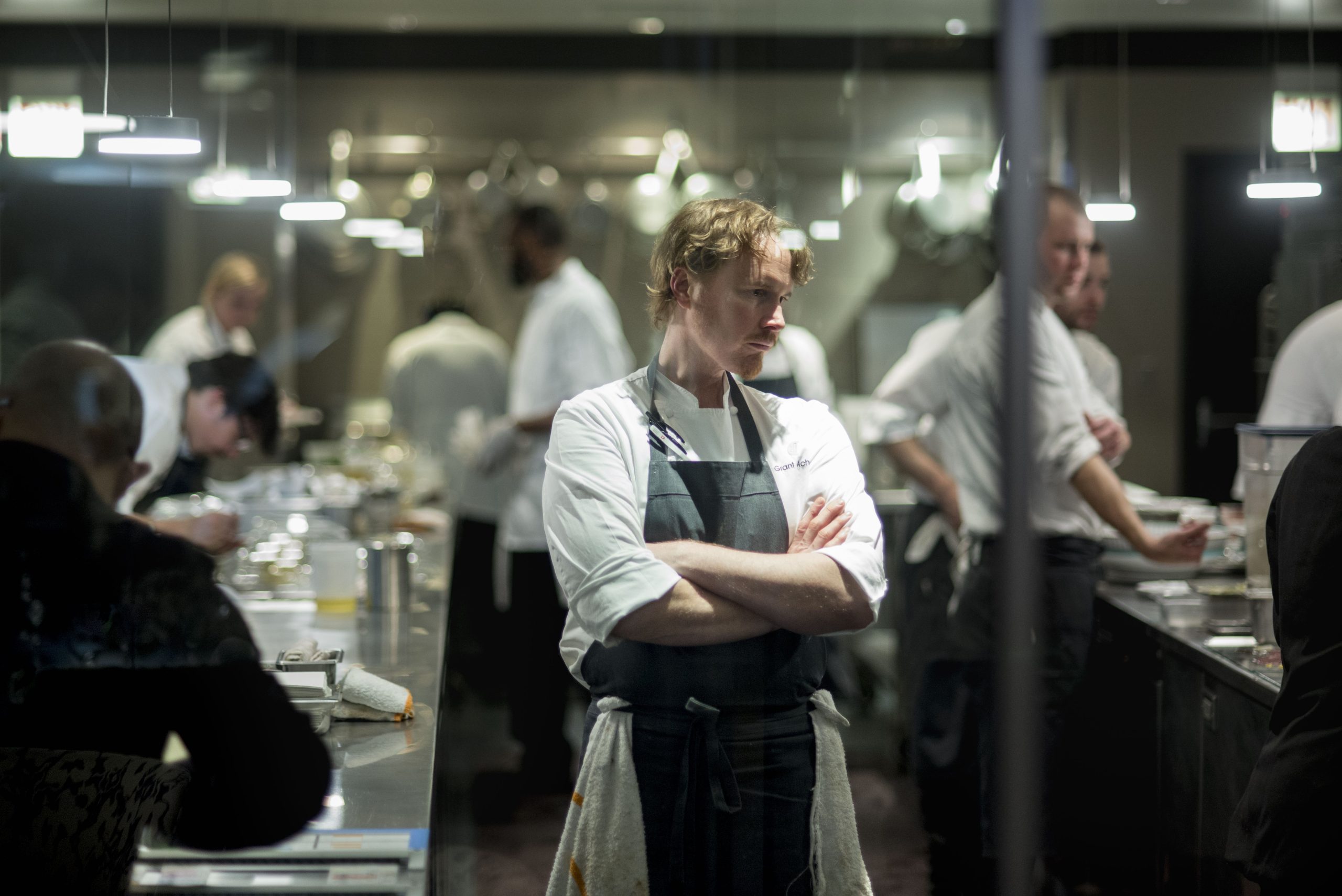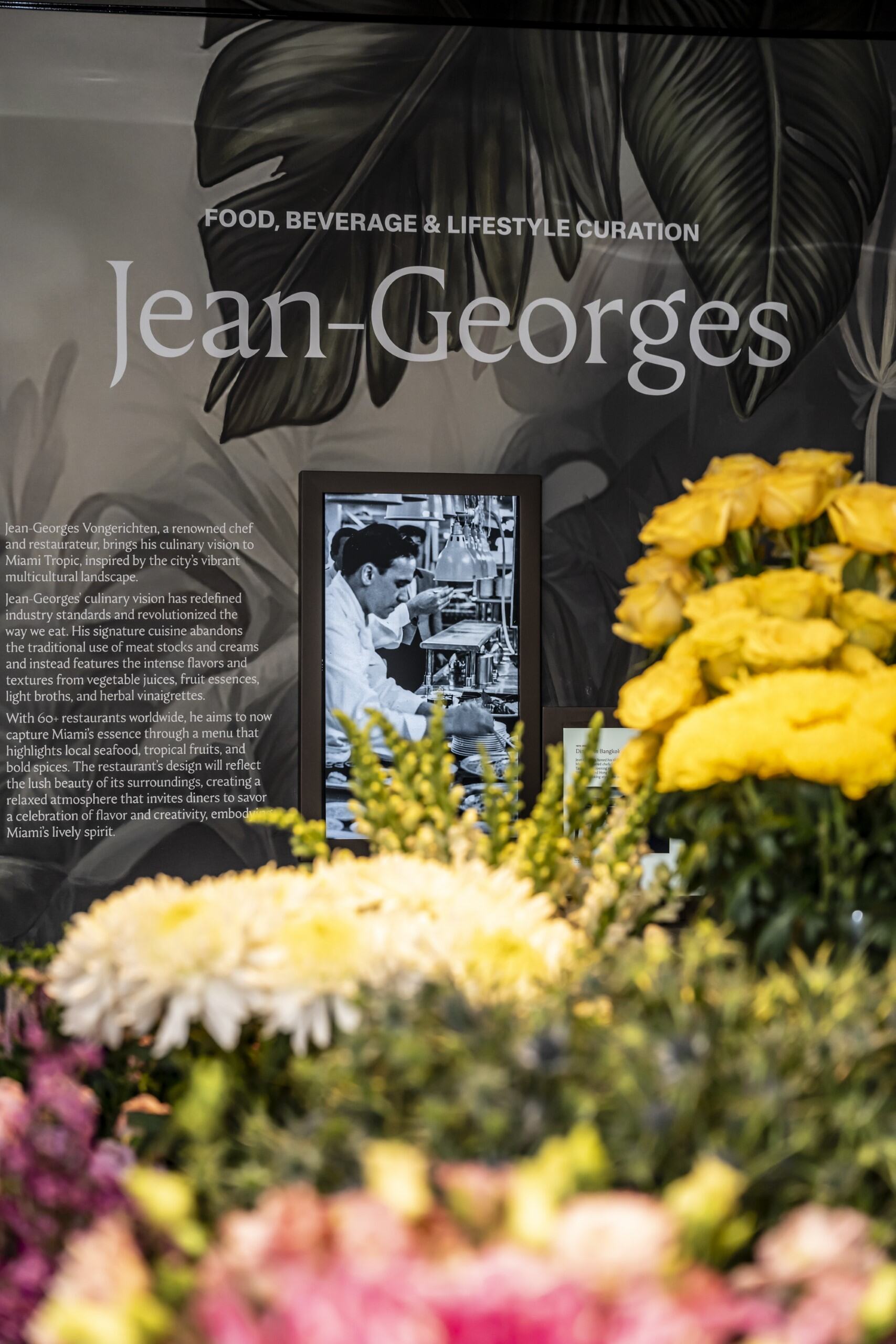The Strong & Silent Type: Why 21 Savage Is Saving His Voice To Speak About The Things That Truly Matter.
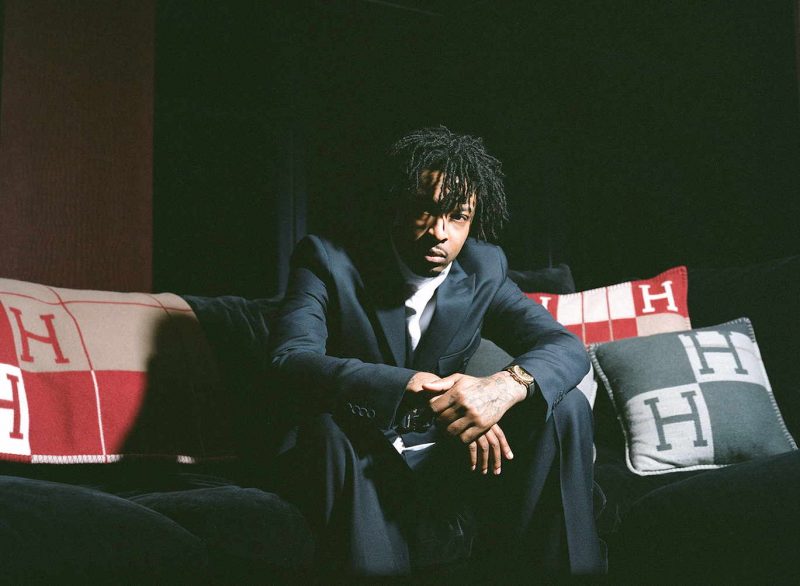
WATCH: Rolex
Photo Credit: John CanonBY LAURA SCHREFFLER
PHOTOGRAPHY JOHN CANON
STYLING FATIMA B.
GROOMING KENNY WILLIAMS
SHOT ON LOCATION IN ATLANTA
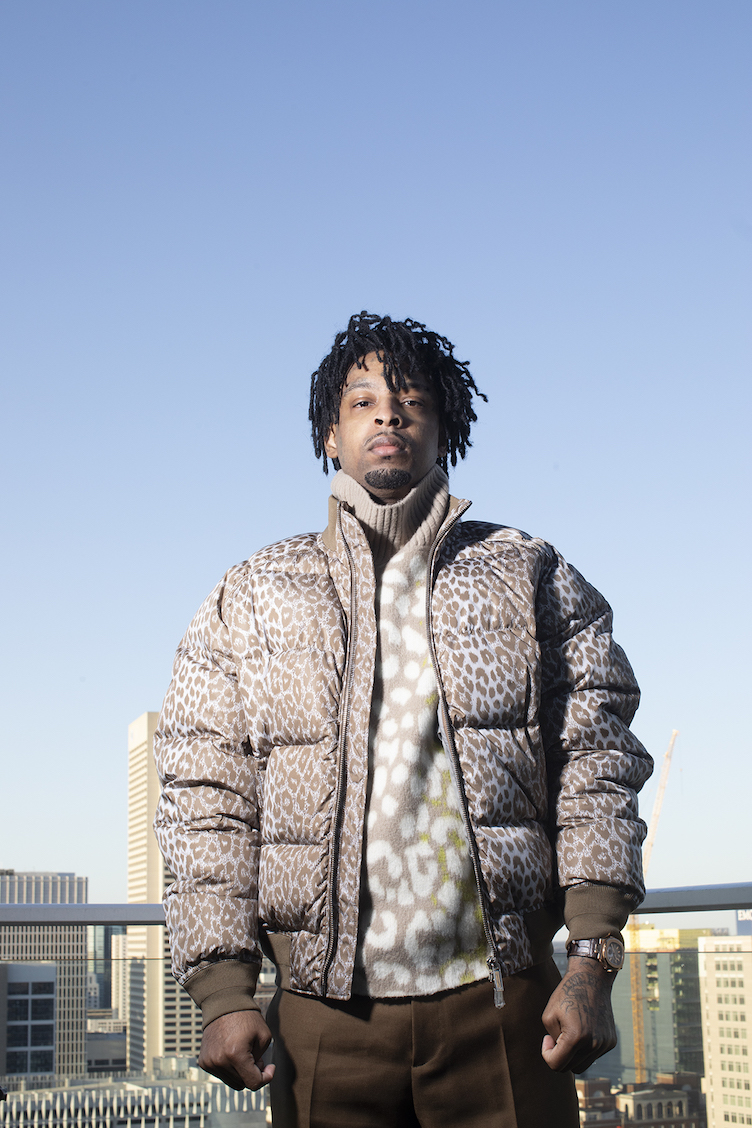
WATCH: Patek Philippe
Photo Credit: John Canon
For a guy who spits rhymes for a living, 21 Savage is, surprisingly, a man of very few words. But I get why he might want to save his breath: There’s not always enough time to say what needs to be said. And after all, in his opinion, “Time is money.”
He makes this statement slowly, quietly, deliberately from his Atlanta home during our photo shoot. There is buzzing from a hair clipper behind him, laughter and chatter around him, but the 29-year-old, London-born rapper — née Shéyaa Bin Abraham-Joseph — sounds completely zen. He’s so chill I wonder at times if he’s in the middle of a nap. And I do envy his ability to tune everything out, but then, this moment in time is the proverbial calm before the storm. Savage is about to have one hella busy month.
His April kicks off strong and gusty with a strong wind that looks like the 64th Annual Grammy Awards (relocated to Las Vegas for the first time ever), where he’ll shoot his shot for a second gramophone trophy. He’ll keep the momentum going later in the month when the Coachella Valley Music & Arts Festival returns to SoCal bigger and badder than ever. Plus, he’s currently 200 songs deep into his third solo album, with more to come.
But first, the Grammys. The music industry’s biggest night is a double-edged sword of desire and distress, because, although it’s taking place two months later than normal this year due to the wintertime surge in the Omicron variant of Covid-19 cases, it also marks a turbulent, extremely painful period in Savage’s life. It was just before the 2019 Grammys, after all, that he was detained by the U.S. Immigration and Customs Enforcement (ICE), held without bail, and almost deported — all at a time when he was nominated for two awards (for his Post Malone collaboration, “Rockstar”) and was scheduled to perform.
After Black Lives Matter launched the #Free21Savage petition, multiple immigration and civil rights organizations followed suit, as did his celebrity friends such as Kendrick Lamar, SZA, DJ Khaled, and Post Malone — who, together, created a “21Ways” PSA calling for his release — he was eventually granted bond. His lawyers successfully argued that he had been legally living in the U.S. for many years and had not, as a U.K.-born citizen, unlawfully overstayed an H-4 visa that expired in 2006, his deportation hearing was postponed indefinitely.
After he weathered this particular storm, luck was on his side, and he followed up that hellacious missed ceremony with his first Grammy win a year later — “A Lot” with J. Cole won Best Rap Song — as well as a nod for Best Rap Album for his sophomore solo effort, I Am > I Was. On April 3, he’ll seek to put more time and space between that moment in time at the 2022 Grammy’s, where he’s up for two trophies: Best Rap Performance and Best Rap Song for “m y . l i f e” with J. Cole and Morray.
Of his latest musical accolades, he says, “I make music for my fans. It comes from the heart, they come first to me. It’s always an honor to be recognized by my peers in the industry. When I got my first Grammy for the song “A Lot”, it was a bonus because that song had so much significance for me personally. This song with Cole is personal, too. That’s my brother, so I appreciate us both getting the love.”
The jury’s still out on whether he’ll attend, but at least this time, it’s his choice and really, either way, it’s a privilege.
It was also his choice, incidentally, to become a first-time headliner at Coachella. And while “chill” is not a word I’d use to describe SoCal’s hottest music festival — especially one that’s now been cancelled three times due to the pandemic, with festivalgoers absolutely ready to rage in their finest desert chic threads — it’s definitely less pressure than the Grammys.
Coachella is still the “it” festival and the excitement around it is palatable for most. Perhaps not obviously so for Savage (again, he’s pretty relaxed), but I’m sure it’s there, just under the surface. He hasn’t been to Indio before, nor has he attended as a fan, nor even really been much of a festival performer at all, truthfully, having only taken the stage previously in 2021 at Rolling Loud Miami — but the excitement is there, without being quite visible. What he’ll allow is this: “I’ve always wanted to do it. I like the idea of Coachella, and I like that it’s in the middle of nowhere.”
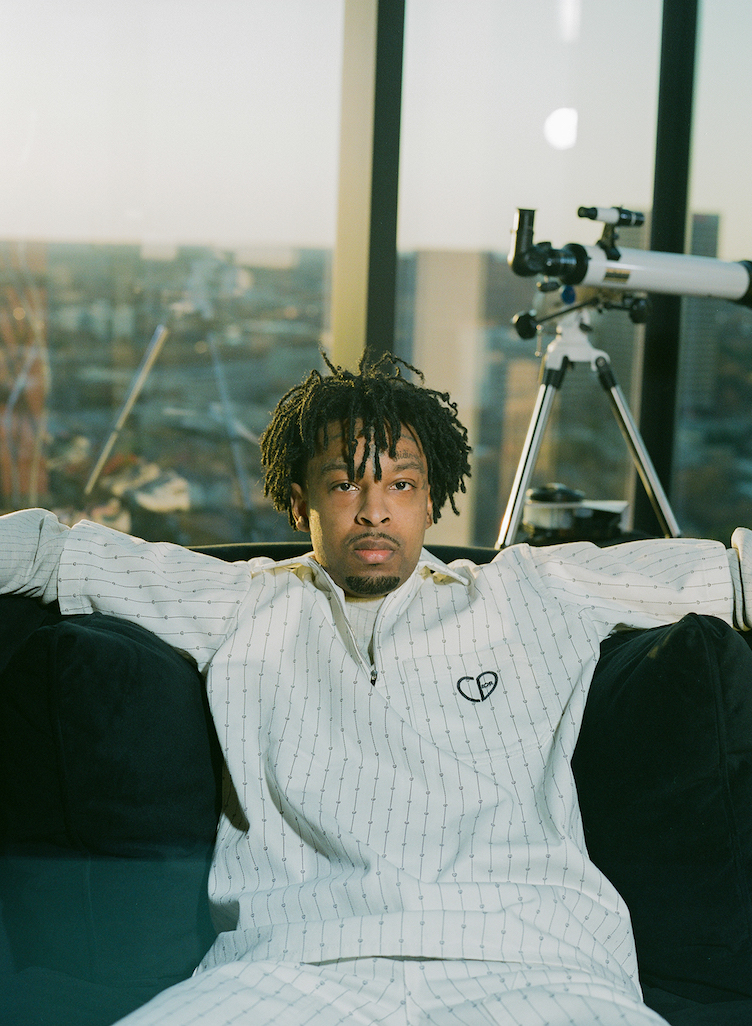
Photo Credit: John Canon
But beyond headlining the Sahara tent on April 17 and 24, everything Coachella-related is shrouded in secrecy, both for Savage and for the fans who bought tickets specifically to see him take the stage. For starters, he’s still trying to figure out what surprises will actually be in store. Secondly, he himself wasn’t quite sure who was even co-headling, though now that he knows recent Oscar winner Billie Eilish is one of the marquee names, he’s happy (“She’s heart!” he raves), and he’s excited to see Ye, the artist formerly known as Kanye West, too, despite being blissfully unaware that the latter has been banned from performing at the Grammys or anything at all, really, about his recent social media related shenanigans. (“What drama? What happened? What did he say? That’s crazy!”).
Hey, ignorance is bliss when you’re busy. And Savage has been busy. Didn’t you catch the bit where I said he’s already laid out 200 tracks for his upcoming third solo effort? Because legit, he has, and there’s even more to come. But he’s young, hungry, and still in the early days of his career, having released his first collaborative EP, Free Guwop, in 2015; followed by the aforementioned Issa Album (2017), I Am > I Was (2018); and the collaborative albums Savage Mode with Metro Boomin (2016); Without Warning with Offset and Metro Boomin (2017); and Savage Mode II with Metro Boomin (2020). [He also recently executive produced the soundtrack for the film Spiral: From the Book of Saw, and released the eponymous single “Spiral.” Given that he’s also one of the most sought-after collaborative artists in recent rap history, Savage has also appeared on several recent popular tracks, including “Knife Talk” by Drake, “thought i was playing” by Gunna, and “Who Want Smoke??” by Lil Durk featuring G. Herbo.]
“I’m really just trying to figure it out now,” he says of his third effort, which is expected to be released this year. “I go to the studio every day; that’s how I get in my zone. Everything is still in the initial stages, but I do try to make all my albums sound unique, so this one is going to be different for sure. I don’t want to sound like anybody else.”
So there’s rhyme, but there’s no real reason… yet. “I’m freestyling, not putting things down on paper,” he explains, adding that, just because there aren’t any of the big collaborators he’s come to work with yet, there 100 percent will be —he just happens to work his own way. “I make the music first and I figure out who I can hear on what — that’s where I’m at right now. That’s how I like to do it,” he explains.
What Savage is sure of is that, in some capacity, the late, great Virgil Abloh will be “getting a shoutout for sure” on his junior effort. Which makes sense given that Savage was the face of Louis Vuitton’s 2021 men’s summer capsule collection (which also featured his song, “Close My Eyes”); Abloh was the LVMH-owned luxury brand’s artistic director until his death from cancer last November at age 41.
Although Savage has, up until this point, been the opposite of verbose, he does show real emotion when speaking about the late fashion designer, sharing that he never even had an inkling that Abloh was ever sick. “I had no idea what he was going through; he didn’t talk like it. It was so messed up, because me and him used to talk all the time. He used to always try to include me in whatever he had going on. When certain people pass away, I just don’t be understanding the universe; how somebody can be so genuine, open-hearted, and pure, and they still got to go through the worst of the worst experiences. It was just crazy. He was a real, genuine person, and [his death] made me question things.”
It certainly made him question his own mortality, but he’s been there before, when he himself cheated death. It’s also how he earned the stage name that would define him. Let’s rewind. Born in London to British nationals with Caribbean origins, Savage moved across the pond to Atlanta with his mother, Heather, at age 7, when his parents split. His sisters, choreographers Kyra and Jayda, remained with his father in the U.K. But Savage’s early life wasn’t easy: He was banned from every school in the DeKalb County School District for gun possession before being sent to a juvenile detention center.
And then came 2013, the toughest year of his life. During an attempted robbery on his 21st birthday, he was shot six times by a rival gang. His best friend was killed in the shootout.
This was the wake-up call he needed, he says. This was the moment when he knew he needed to change his life.
“Getting shot made me want to change my life, and my career,” he confesses, explaining that this is how he found music, and when he ultimately decided to channel all his destructive behavior into something powerful.
He began rapping right after being shot, with a career subsidized by his deceased friend Johnny’s uncle, who gave him money for studio time. He released his debut single, “Picky,” in 2014, which was also included on his debut mixtape, The Slaughter Tape, in 2015; this was followed by Free Guwop, a tribute EP to Gucci Mane. His second mixtape, Slaughter King, was released that same year.
“I started messing around with music and then I started to like it, so I kept on and kept on, and I got better and better. As I got bigger, more people heard me, and my career grew and just kept on growing,” he says.
This is the truth. With a social status that some have referred to as an underground Atlanta hero backing him up, he continued to release music, including his joint 2016 EP, Savage Mode, which peaked at No. 23 on the Billboard 200. In 2017, he signed with Epic Records and released his debut recording, Issa Album, soon after. The result: success. So when he says he owes everything he has to music, he means it whole-heartedly.
“Music for sure changed the way I live. I have financial freedom; my family is good. It changed the way I think, too, because now, I’ve got a lot to lose.”
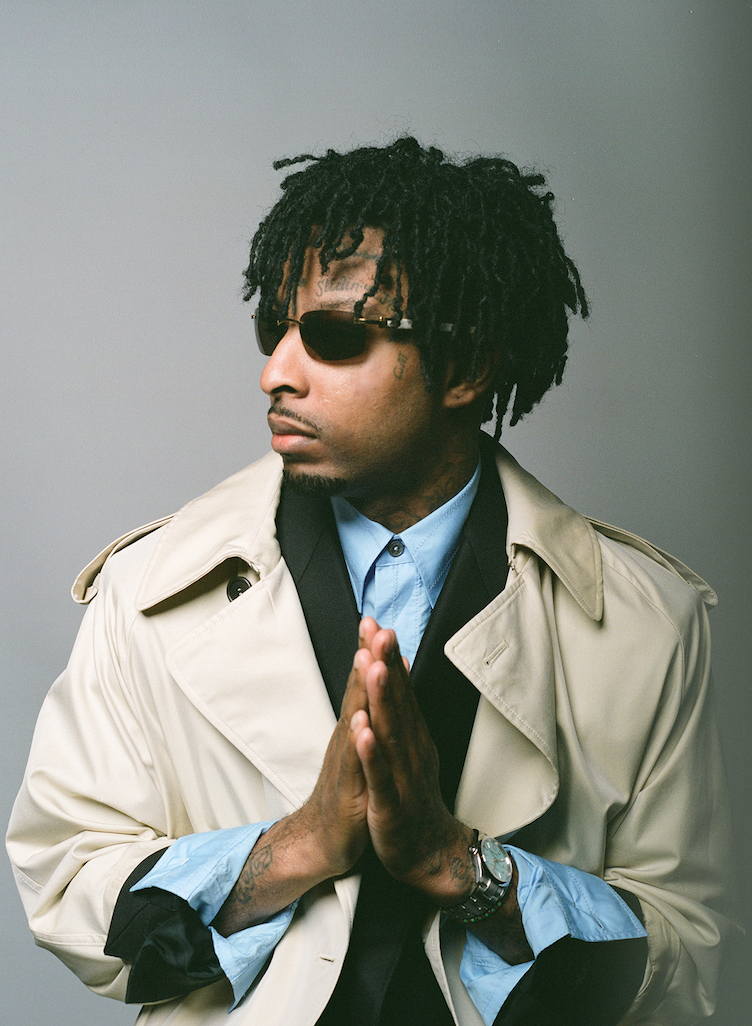
WATCH: Rolex
SUNGLASSES: Tiffany & Co.
Photo Credit: John Canon
When 21 Savage says he’s got a lot to lose, he’s speaking metaphorically, but also, quite literally. This guy has way more stuff than the average human, which makes sense for someone who grew up without it.
He still lives in Atlanta, but in a mansion. He has more boy toys than one man can reasonably know what to do with: houses, cars, cigars, watches. It’s the kind of stuff he’s always coveted — expensive, defining, an expression of success.
“[My love of luxury] came with time, as my life and my career evolved,” he explains. “Now, I love fast cars and watches, nice houses. I have about 20, 30 cars: a Ferrari SF90, a Dodge Hellcat, Mercedes, and Cadillacs. I have antique cars. I have Patek Philippes, Richard Milles, Rolexes, Audemars Piguets, Piagets. I’ve got watches that I’ll keep forever, the ones that are rare. I’ve got a special Richard Mille; they only made like, nine of them, so that’s probably the rarest one I’ve got.”
He goes on to describe his 50-strong humidor, which houses Gurkhas, Arturas, and Montecristos, among others, and his extensive art collection. [He’s not in the NFT space yet but tells me he’ll get there “eventually once I figure it out.”]
There’s no doubt about it: 21 Savage is a guy who loves his luxuries. But at the end of the day, he could survive without them. Don’t forget, this is the man who also wrote “A Lot” [Every day that I’m alive, I’ma ride with the stick/I’d rather be broke in jail than be dead and rich/Told my brothers take my breath if I turn to a snitch/But I’m 21 4L, ain’t no way I’ma switch]. And so, it’s the things to which he attaches personal meaning that are the most impactful. That includes his recent acquisition, a painting by Kehinde Wiley, an artist best known for his naturalistic portraits of African American men in heroic poses.
“I’ve never seen anything like it,” he declares. “It’s two Black men, surrounded by flowers. It just stuck out to me.”
There’s something unexpectedly sweet about Savage (even more unexpected given that “Savage” is his stage name), who isn’t shy about confiding that his childhood dream was to be an Air Force pilot, and who manifested that desire into a quest for his pilot’s license as an adult (he’s halfway there). He is unexpectedly spiritual, practicing the West African Ifá religion; and describes himself, above all else, as “solid, genuine, and pure; sharing that the three most impactful moments of his life — in addition to being detained by ICE and getting shot — was the birth of his children Kamari, 7; Ashaad, 5; and Rhian, 5.
After learning these things, I’m not surprised in the slightest that he found a purpose by giving back, in “[helping] to give to others [some of] the opportunities” he himself is lucky to have. That he’s so hell-bent on sharing the wealth, so to speak.
On that note, in 2017, his four-time platinum hit record “Bank Account” sparked the desire to put his money where his mouth is, and in turn, launched the nationwide Bank Account Financial Literacy Campaign, which teaches kids basic money management skills as well as how to open bank accounts. In 2020, in response to the pandemic, he launched “Bank Account at Home” to cover lost wages for kids enrolled in said program who had lost their jobs; he also partnered with former Atlanta mayor Keisha Lance Bottoms’ ATL Strong to provide WiFi and tablets to underprivileged youth. This, in part, is his way of transforming his hardships into something good, something useful, for children, in conjunction with his Leading by Example Foundation.
“Giving back is especially important to me, because I feel like I’m blessed with a lot of the stuff I have, so that I could give back to people. Other than that, I want to build a child center in one of my old neighborhoods for kids to have a place to go and learn different trades or just do different things other than just roam and get into trouble,” he says, confiding that he’s actively speaking to a few of his successful Atlanta-based friends to see how they can “come together and figure it out.”
But he wants to inspire in other ways, too, and he’s hopeful that by sharing his story — quietly or not — he’s doing just that. “I feel like people just hearing my story will [be] motivated, period. Seeing where I came from to where I am now, hopefully, it does that.”
He wants to offer the reminder that, no matter how terrible things get, there is always something brighter on the other side, and that if you push yourself hard enough to change, you can always put distance between the past and the present — especially if you put in the work to do so.
“Right now, I’m at the best point in my life, mentally. I’ve evolved, and I can’t really credit it to one thing. I can’t really say that it was one thing that got me here,’ he admits, adding, “But [my greatest luxury] has always remained the same, and that’s happiness, because nothing — no material thing in life — can replace that.”
Not even multiple Grammy Awards, born out of hardship.
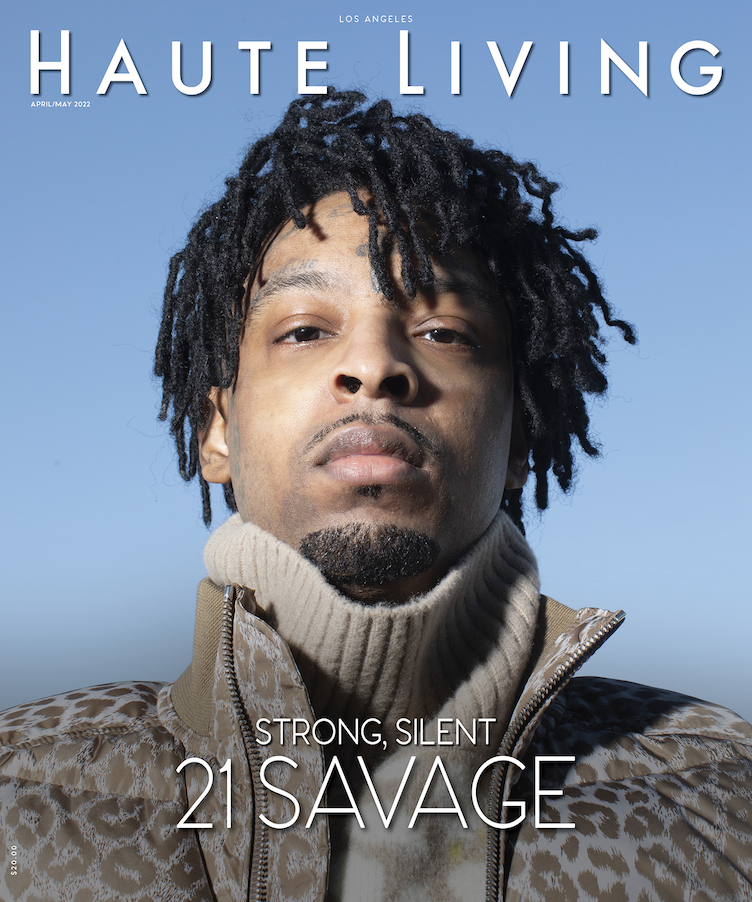
Photo Credit: John Canon







